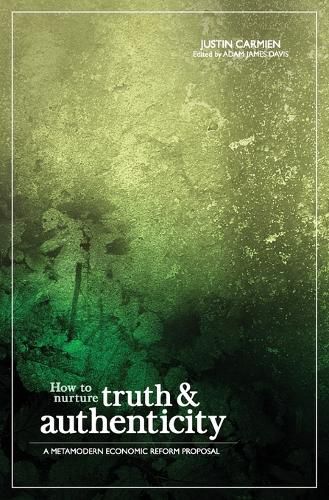Readings Newsletter
Become a Readings Member to make your shopping experience even easier.
Sign in or sign up for free!
You’re not far away from qualifying for FREE standard shipping within Australia
You’ve qualified for FREE standard shipping within Australia
The cart is loading…






This title is printed to order. This book may have been self-published. If so, we cannot guarantee the quality of the content. In the main most books will have gone through the editing process however some may not. We therefore suggest that you be aware of this before ordering this book. If in doubt check either the author or publisher’s details as we are unable to accept any returns unless they are faulty. Please contact us if you have any questions.
In the 1920s, the German philosopher Martin Heidegger attempted a novel definition of truth. This was required in order to firmly delineate the sense of being. Taking the Ancient Greek
as his directive, he collapsed the subjective / objective dichotomy and surmounted the understanding of truth as an assertion in agreement with reality. Heidegger came to an understanding of truth more robust than what is assumed by the scientific industries. He identified the nature of truth as disclosive. This understanding proved to have immense explanatory power over the positivist understanding of the nature of truth as fact. Unfortunately, this understanding was never allowed to blossom; still, to this day, we suffer from the state of affairs in which our political mechanisms are grounded upon narrow conceptions of the nature of truth as fact. Consider the political economy in which truth in service to today. To be sure, the failing institutions of democracy (post-truth), social justice activism, and the prevalence of conspiracy theory are all evidence that the mechanisms of technocratic governance (which make use of truth as fact! ) are unable to satisfy the ideal of democracy. Therefore, only now, and nearly 50 years after Heidegger’s death, does the story of truth as fact come to a close. At this pivot, truth will either die as the fact, or it will find new purpose in a future political and interpersonal commerce. If we add to the nature of truth something perhaps quite novel-namely, that is it projective, and if we allow ourselves submission to the overwhelming explanatory power of this twofold definition, then we are presented with the vision of governance as projection-a governance in which truth may be allowed to fulfill its nature as both disclosive and projective in that emergent paradigm which has been prophesized in metamodern discourse. In the book How to Nurture Truth and Authenticity, a platform for governance as projection is proposed. It is only possible only when standing firmly in a novel thinking space called first economics philosophy.
This book also contains interactive features.
$9.00 standard shipping within Australia
FREE standard shipping within Australia for orders over $100.00
Express & International shipping calculated at checkout
This title is printed to order. This book may have been self-published. If so, we cannot guarantee the quality of the content. In the main most books will have gone through the editing process however some may not. We therefore suggest that you be aware of this before ordering this book. If in doubt check either the author or publisher’s details as we are unable to accept any returns unless they are faulty. Please contact us if you have any questions.
In the 1920s, the German philosopher Martin Heidegger attempted a novel definition of truth. This was required in order to firmly delineate the sense of being. Taking the Ancient Greek
as his directive, he collapsed the subjective / objective dichotomy and surmounted the understanding of truth as an assertion in agreement with reality. Heidegger came to an understanding of truth more robust than what is assumed by the scientific industries. He identified the nature of truth as disclosive. This understanding proved to have immense explanatory power over the positivist understanding of the nature of truth as fact. Unfortunately, this understanding was never allowed to blossom; still, to this day, we suffer from the state of affairs in which our political mechanisms are grounded upon narrow conceptions of the nature of truth as fact. Consider the political economy in which truth in service to today. To be sure, the failing institutions of democracy (post-truth), social justice activism, and the prevalence of conspiracy theory are all evidence that the mechanisms of technocratic governance (which make use of truth as fact! ) are unable to satisfy the ideal of democracy. Therefore, only now, and nearly 50 years after Heidegger’s death, does the story of truth as fact come to a close. At this pivot, truth will either die as the fact, or it will find new purpose in a future political and interpersonal commerce. If we add to the nature of truth something perhaps quite novel-namely, that is it projective, and if we allow ourselves submission to the overwhelming explanatory power of this twofold definition, then we are presented with the vision of governance as projection-a governance in which truth may be allowed to fulfill its nature as both disclosive and projective in that emergent paradigm which has been prophesized in metamodern discourse. In the book How to Nurture Truth and Authenticity, a platform for governance as projection is proposed. It is only possible only when standing firmly in a novel thinking space called first economics philosophy.
This book also contains interactive features.